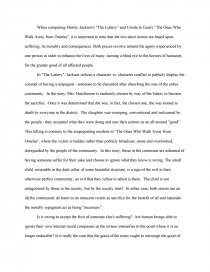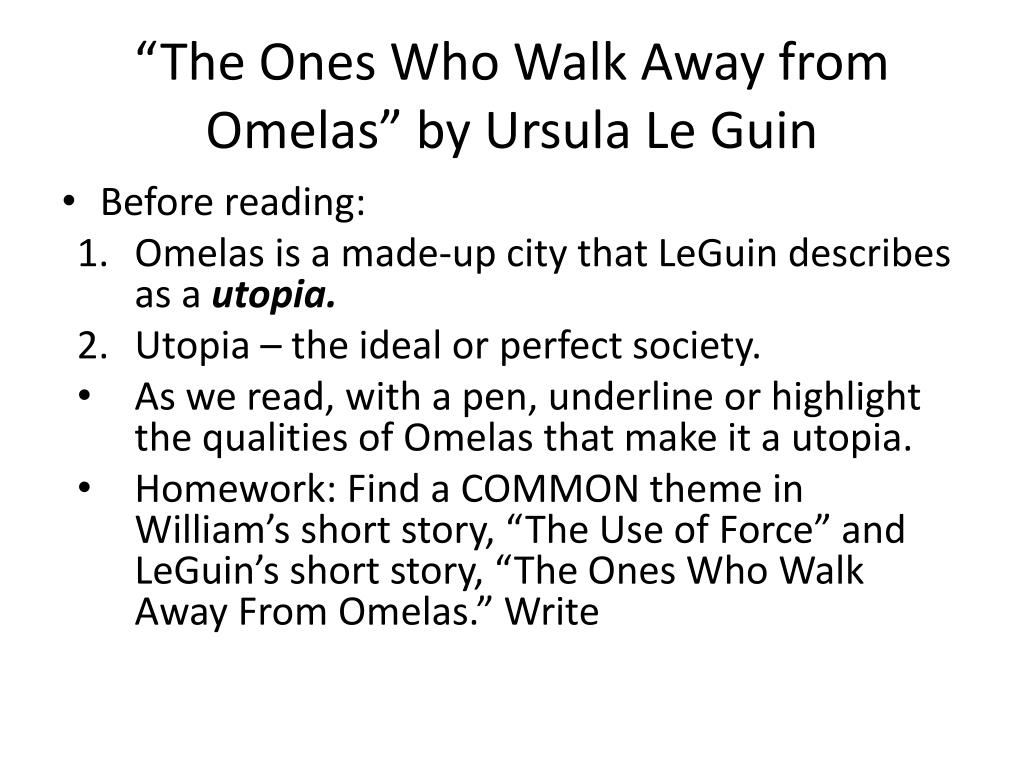


In this case, the reality of Omelas is dependent on the involvement of the reader. As the narrator begins to describe Omelas in more detail, he/she moves to the conditional tense, a verb tense which is subject to or dependent on a condition. In the first paragraph, the narrator describes the festival in the past tense. Le Guin manipulates the narrative, and therefore the reader, by shifting tenses throughout the story. Perhaps it would be best if you imagined it as your own fancy bids, assuming it will rise to the occasion, for certainly I cannot suit you all.” Since readers are asked to develop their own perceptions of Omelas, they are implicated in the creation of Omelas as well as in the horrible situation on which the society rests. Omelas sounds in my words like a city in a fairy tale, long ago and far away, once upon a time. For example, toward the beginning of the story, the narrator states: “I wish I could describe better. Since the narrator invites the reader to take part in the description of Omelas, he/she is not an objective or reliable observer. The narrator is not an active participant in the story and does not have any special insight into the characters’ perceptions. The Ones Who Walk Away from Omelas is told from the point of view of a first-person narrator. In the second section, the narrator reveals the existence of the child and matter-of-factly describes the awful conditions in which it is forced to live. In the first section, the narrator attempts to describe Omelas even though he/she notes more than once that the description is inadequate and does not capture the joy and happiness of Omelas.

The story is divided into two fairly distinct sections. Although most of the citizens accept the situation, a small number of people leave Omelas forever after seeing the deplorable conditions in which the child lives. Toward the end of the story, however, the narrator reveals that the happiness of Omelas is dependent on the existence of a child who is locked in a small, windowless room and who is abused and mistreated. The Ones Who Walk Away from Omelas is the story of Omelas, a city where everyone seems to be happy and to live in peace and harmony.


 0 kommentar(er)
0 kommentar(er)
